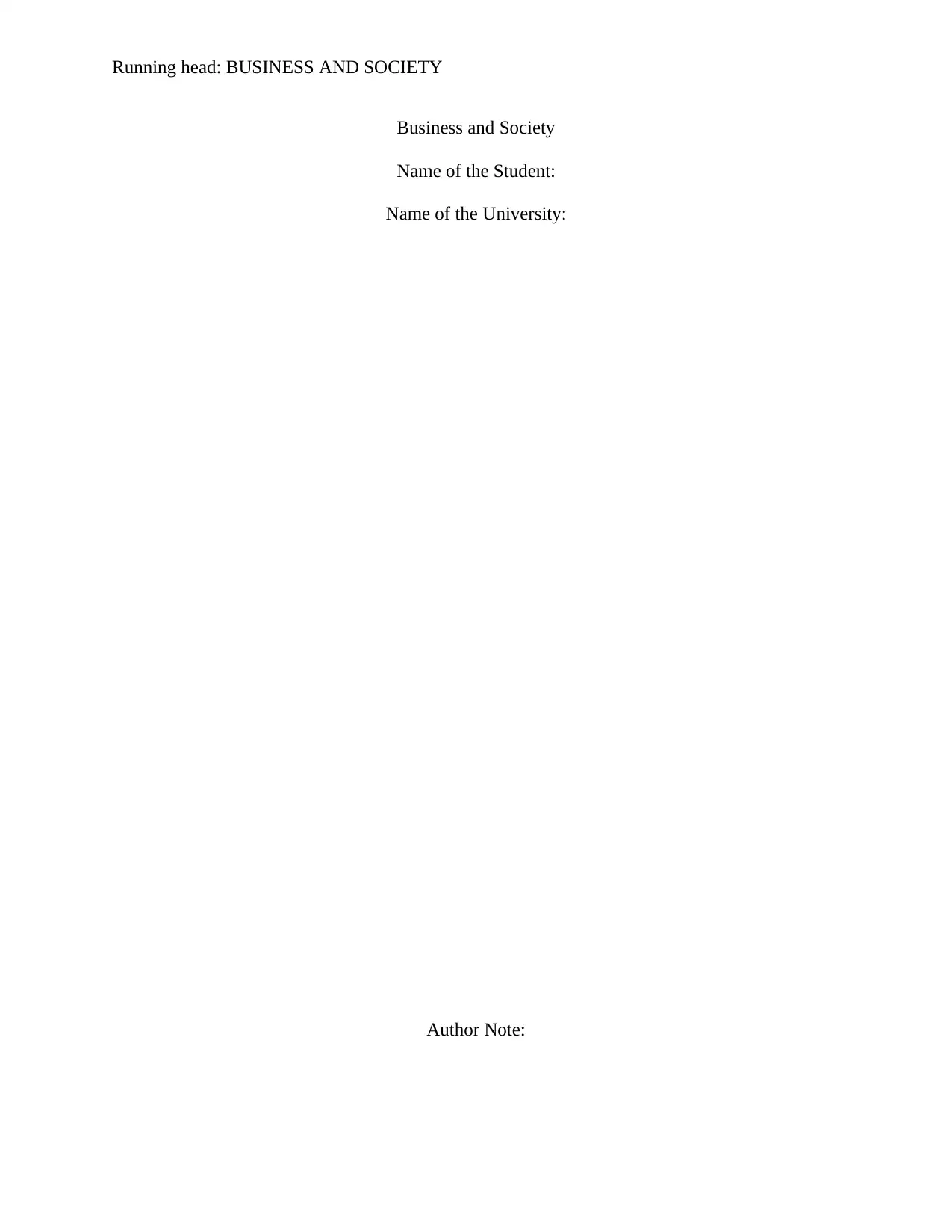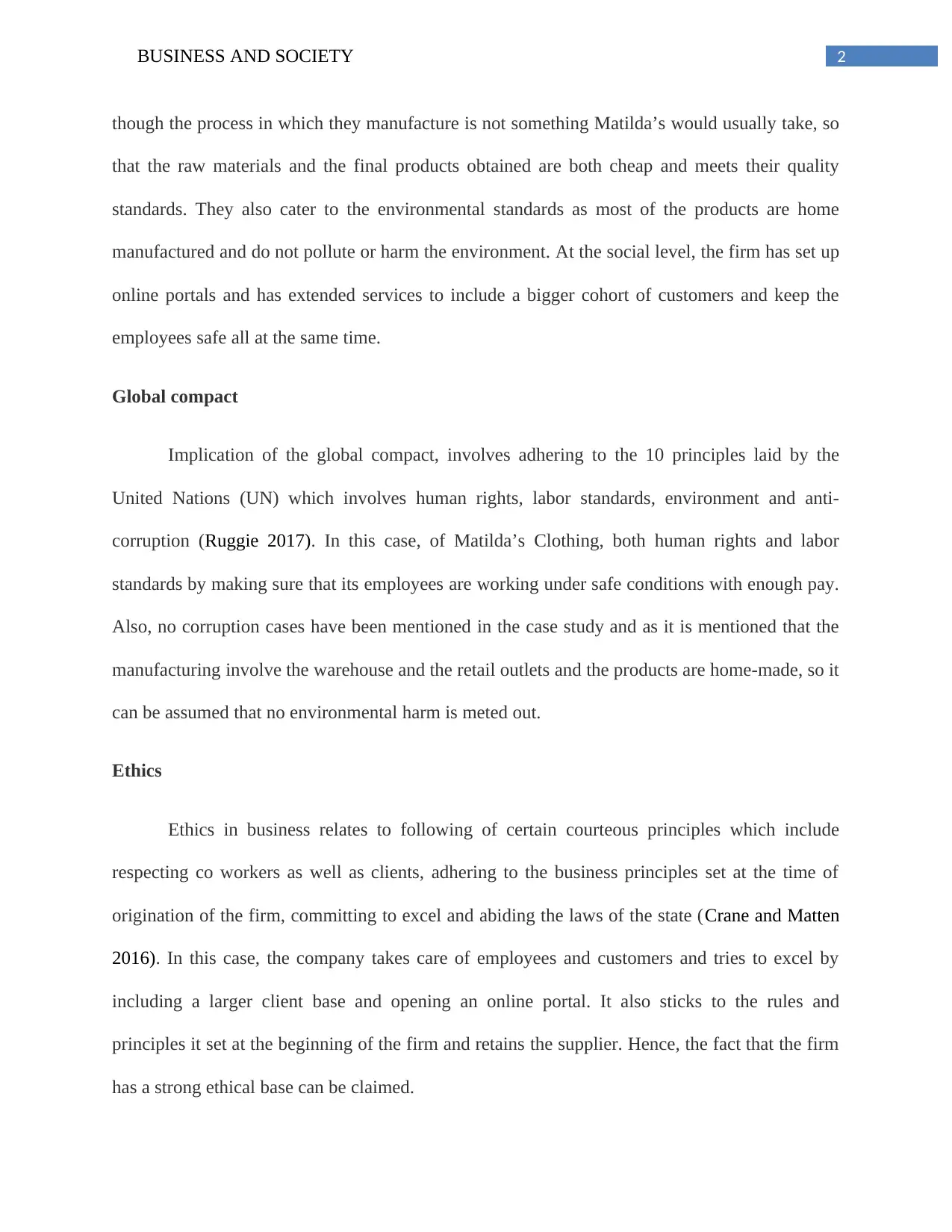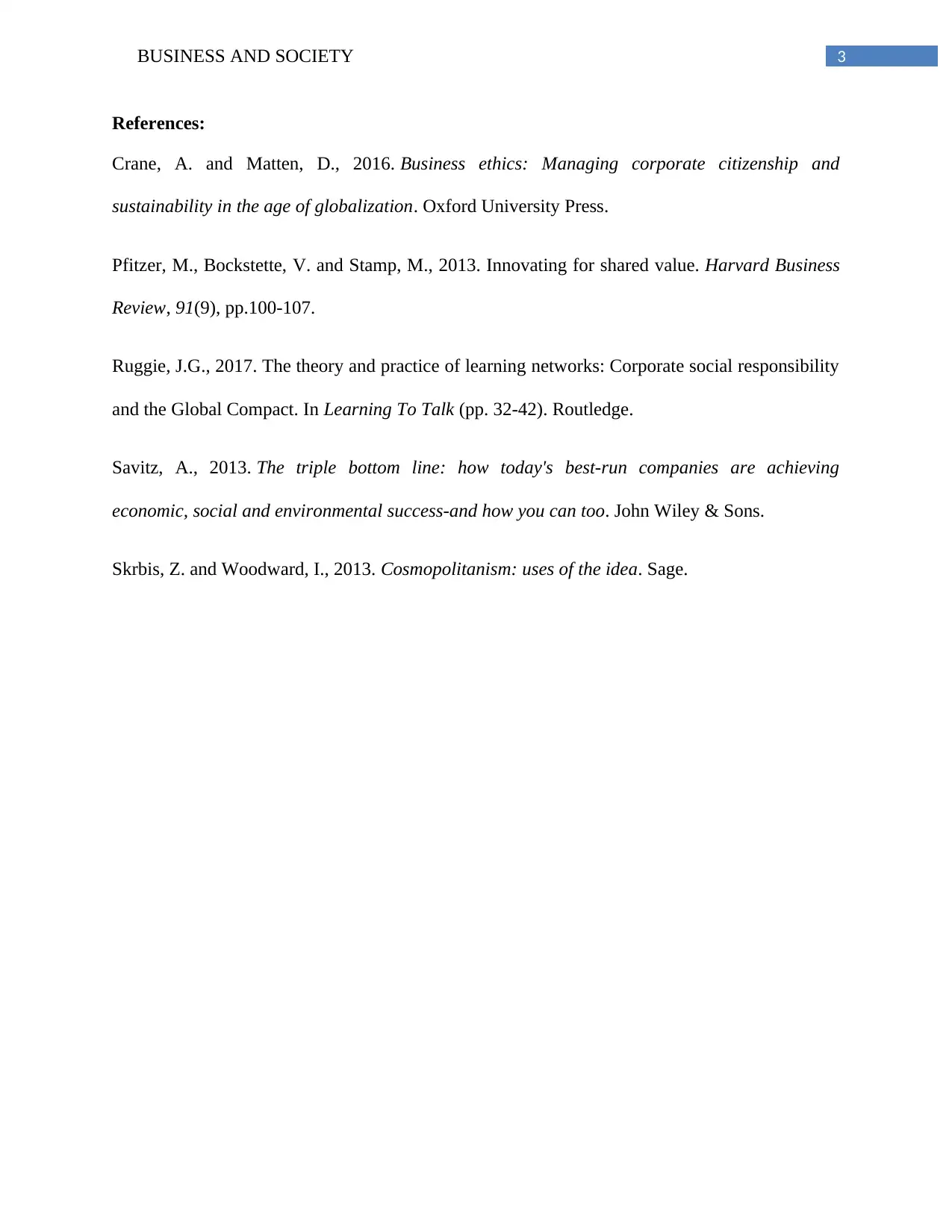Matilda's Clothing: A Case Study on Business and Society Concepts
VerifiedAdded on 2023/06/13
|4
|808
|156
Case Study
AI Summary
This case study solution analyzes Matilda’s Clothing, a fictional women’s clothing business, through the lens of several key business and society concepts. It explores how the company incorporates cosmopolitanism by sourcing materials from both local and international suppliers, shared value by focusing on employee well-being and ethical sourcing, and the triple bottom line by considering financial, environmental, and social impacts. The analysis also examines the company's adherence to the UN Global Compact principles related to human rights and labor standards, as well as its overall commitment to ethical business practices by respecting stakeholders and adhering to established principles. The solution highlights how Matilda's Clothing strives to balance profitability with social responsibility and ethical considerations in its operations and supply chain management.
1 out of 4






![[object Object]](/_next/static/media/star-bottom.7253800d.svg)